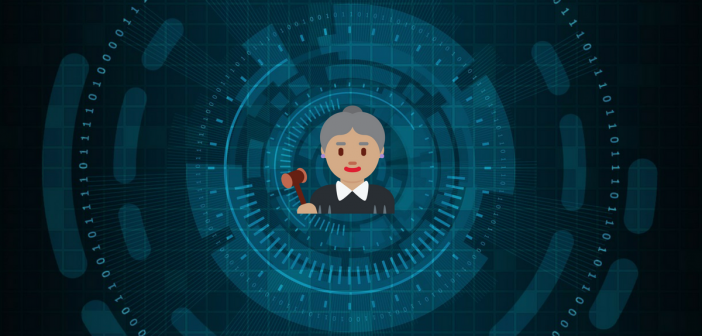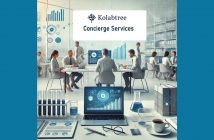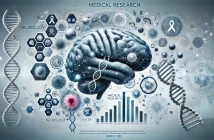The adoption and use of big data and analytics is transformative, and it touches nearly every aspect of business in the world today. There’s no escaping its presence. Retailers are using big data to improve customer experience and sales, healthcare professionals are using it to improve efficiency and care, and financial firms are using it to compete with tech companies. But legal professionals need data scientists too.
In the legal world, information is power. Understanding clients and their predicament and position, realizing how that factors into the law, and determining what arguments or points to highlight are all part of building and winning a case.
A staple of every legal professional’s job is spending hours — or even days — scouring books and documents, police records, client histories and an endless stream of files for relevant information. The higher up the legal chain someone is, the more assistance there is, including from interns and students. However, no matter how much the process is automated through the help of colleagues, it’s still done manually and is incredibly tedious.
There’s a much better, more efficient and modern way. It involves big data, AI or machine learning tools, and advanced analytics. These technologies can be used to not only automate the information collection process but also store data in more efficient and organized ways. Imagine never having to look for a particular chapter or verse in a thick law book. You can just search topics, cases or potential outcomes to find what you need, digitally.
Of course, before a comprehensive and digital law system can be presented or available, the related information must be translated and processed through such platforms. That, in and of itself, will take a considerable amount of time to do.
That’s exactly where knowledge of data science comes into play.
Building a Legal Research Database
The way to develop or create a system with research capabilities is to simply transcribe and enter legal information into a database. The resulting AI and machine learning tools will reference this data to find the answers necessary. Such databases don’t exist yet, at least not in full. It will take time and resources to convert all important legal documents, books , nd studies to the digital world.
There’s more at play than just converting physical text to data. This is highly sensitive information we’re talking about, especially as it pertains to active investigations and ongoing cases. The data being stored must be secure, private and free from unauthorized access. This, too, is a tenet of data science that involves the proper protection and handling of the information in your possession. Many technologies impact existing laws or generate the need for new ones upon their arrival. Just consider self-driving vehicles and how modern society is trying to prepare for their rollout.
The process is better suited for those with experience in the data science and IT field. Unfortunately, knowing which data is important and should be preserved is something only a true legal professional could handle.
A merger between the two professions is in order. Some are already taking the liberty, such as Bennett Borden from the law firm of Drinker Biddle & Reath.
Furthermore, once you have the data in place, you’ll need skilled legal professionals and data scientists to build the algorithms and applications used for advanced analytics. This includes apps that can find the information you’re looking for by scouring a database. They don’t just magically appear. They have to be constructed and developed, and then honed over time so the responses and answers are accurate.
What’s the Result?
Let’s say a comprehensive system, like the one we’re describing, existed right here and now. What would the results be? What are the benefits, and are they worth all the hassle?
Analytics, in general, allows for much stronger decision-making and more informed futures. Consider how it works in retail and marketing. With comprehensive and contextual systems, retailers and marketers can see customer habits, demands and even reactions to various decisions. This information can then be used in the future to make more informed decisions, or to predict customer behavior altogether. It’s like knowing the chess moves of your opponent before even they do.
The same benefits would be offered in the legal profession. Analytics can help achieve stronger decision-making skills, build better and more winnable cases, and find the relevant legal information through hundreds — if not thousands — of transcribed documents and materials. More importantly, this can be done quickly, much faster than any human team, large or otherwise.
Ravel Law, established in 2012, is already doing something just like this. It offers a service called “Judges Analytics” that searches through every decision made by a specific judge to help find contacts who would be sympathetic to arguments.
What Modern Data Means for Legal
Knowledge is power, especially in the legal industry. The more equipped and informed a professional is, the better their chances at building and winning a case. This applies not only in criminal courts, but also in every aspect of the law. Patent and business proceedings require just as much focus and attention to detail, which can be tedious in such instances.
These modern technologies can automate and provide more efficient services for all. There’s no ignoring the risks and security concerns that go along with a move to digital, but many of those issues can be waylaid by proper experience in IT. The handling of said data and information is also best trusted to data scientists, who know when, where and how to search. More importantly, they can help directly influence the development of such systems, which would provide the tools AI and machine learning platforms need to interact with legal data. Legal professionals need data scientists to streamline their processes and for advanced insights that will help them take reliable decisions confidently.







